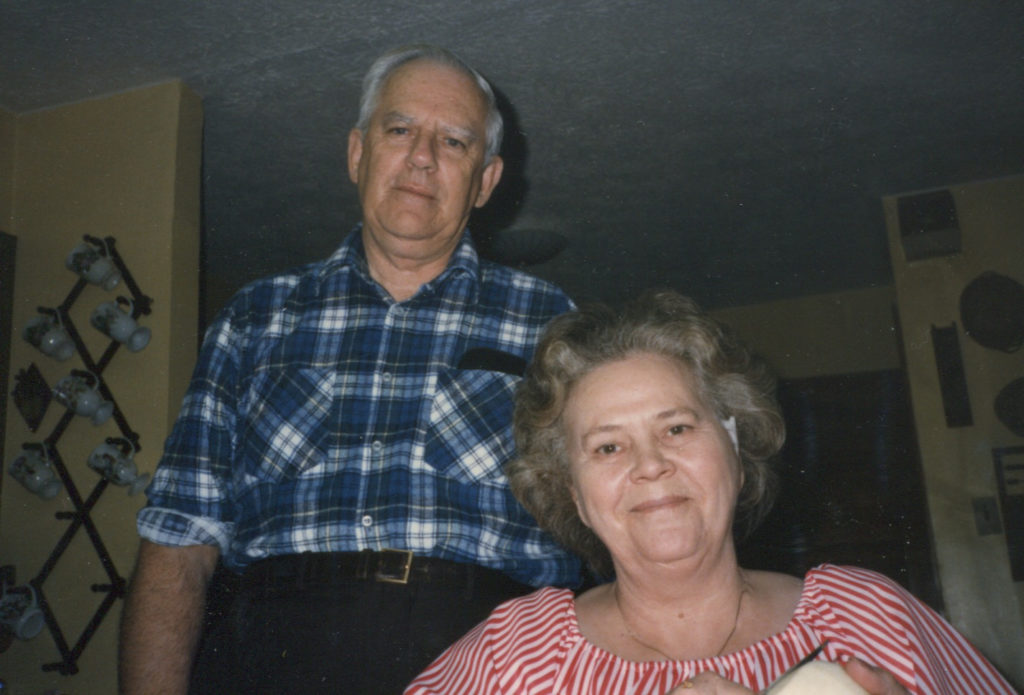
There are no shortage of good photos of John and Evelyn from their wild and fast younger days. But the years took a toll and there just didn’t seem to be many good pictures of them from their later years. I really like this one.


There are no shortage of good photos of John and Evelyn from their wild and fast younger days. But the years took a toll and there just didn’t seem to be many good pictures of them from their later years. I really like this one.
First attempt with new recording technique. Video from iPhone in effort to get away from the “looking straight into the laptop camera” look. Recorded audio using Amadeus Pro, then sync’d them. Did the sepia tone and audio tweak in ScreenFlow. So, yeah, I sort of forgot about singing and playing the uke.
ScreenFlow has some nice special effects for audio and video and think I like this version better than the first. Slightly more “enhanced”

Dr. Paul Miltenberger and Barbara

Barb Miltenberger
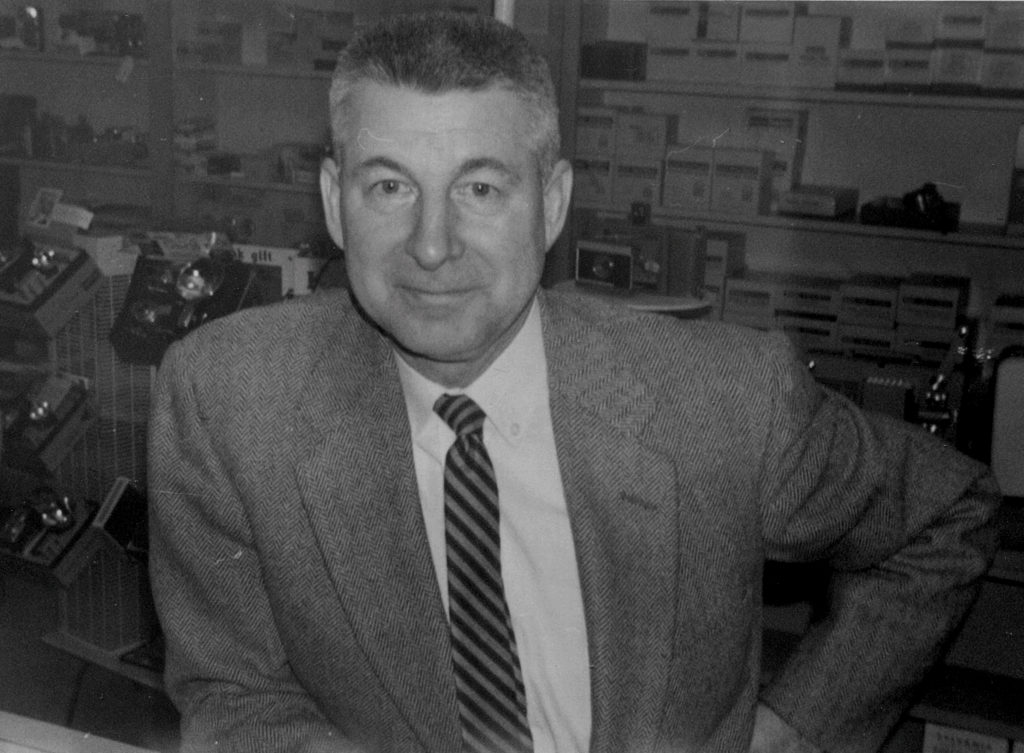
Dr. Paul C. Miltenberger

Late ’80s if I had to guess.
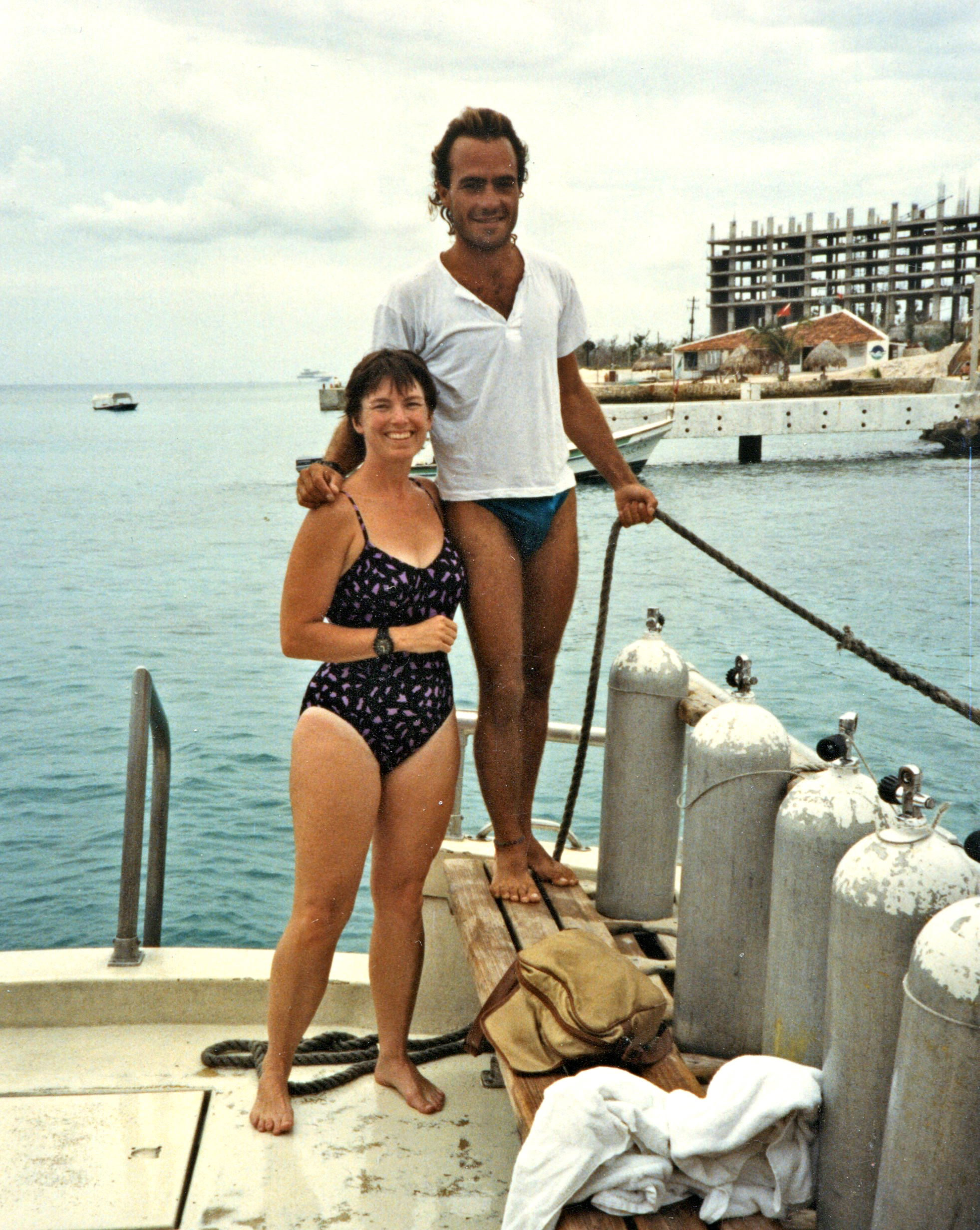
Barb with Dive Master Fernando. Bahamas?
The photos below have been yellowing with age in a cardboard box in our attic. As Barb excavates, I’ll share some of them here.



Barb and Sister Jan

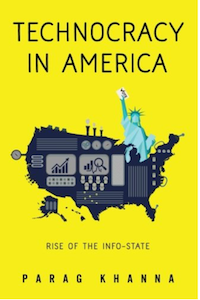 “American democracy just isn’t good enough anymore. A costly election has done more to divide American society than unite it, while trust in government–and democracy itself–is plummeting. But there are better systems out there, and America would be wise to learn from them. In this provocative manifesto, globalization scholar Parag Khanna tours cutting-edge nations from Switzerland to Singapore to reveal the inner workings that allow them that lead the way in managing the volatility of a fast-changing world while delivering superior welfare and prosperity for their citizens.” Amazon »
“American democracy just isn’t good enough anymore. A costly election has done more to divide American society than unite it, while trust in government–and democracy itself–is plummeting. But there are better systems out there, and America would be wise to learn from them. In this provocative manifesto, globalization scholar Parag Khanna tours cutting-edge nations from Switzerland to Singapore to reveal the inner workings that allow them that lead the way in managing the volatility of a fast-changing world while delivering superior welfare and prosperity for their citizens.” Amazon »
Switzerland is so decentralized it does not have a president (or head of state), but rather a Federal Council of seven members whose chairman rotates each year. (Most citizens cannot name even three of the seven.)
(Info-states) define their geography by their connectivity rather than just their territory; their supply chains are as important to their map as their location.
Their only ideology is pragmatism.
As with natural selection, governance models evolve over time through adaptation, modification, and imitation. The more the world becomes connected and complex, devolved and data-saturated, the more the info-state model will rise in status. Global political discourse is shifting into a post-ideological terrain where performance—based on citizen satisfaction and international benchmarks—is the arbiter of success.
We are coming to appreciate that the difference between successful and failing countries today is not rich versus poor, left versus right, or democratic versus authoritarian, but whether they have the capacity to meet their citizens’ basic needs, empower them as individuals, and act or change course when needed. Everything else is window dressing.
Here then is a key reason to pay attention to technocracy: Because it is Asia’s future. Technocracy becomes a form of salvation after societies realize that democracy doesn’t guarantee national success. Democracy eventually gets sick of itself and votes for technocracy.
China’s spectacular rise versus that of democracies such as India has shown the world that it is better to have a system focused on delivery without democracy than a system that is too democratic at the expense of delivery. For democracy to be admired, it has to deliver.
In the long run, the quality of governance matters more than regime type.
“Chinese people don’t love their government, but they trust it.”
“The Swiss no longer believe in churches and religion,” muses Reto Steiner, a professor at the University of Bern. “They put their trust in deliberation, academics and experts.
Watches and knives, pharmaceuticals and chocolate, precision tools and encrypted hardware—almost everything Switzerland makes is better than anything anyone else can offer. This is because rather than shun vocational education, Swiss overwhelmingly prefer apprenticeships as a mode of skill-building for the global marketplace.
The top three most competitive economies in the world according to the Global Innovation Index (GII) are Switzerland, South Korea and Singapore, all of which have vocational educational systems and worker retraining programs and near-zero unemployment.
The state-builders, urban planners, and economic strategists of the 21st century all take their inspiration from (Singapore’s founder) Lee Kuan Yew, not Thomas Jefferson.
Singapore’s civil service is a spiral staircase: With each rung you learn to manage a different portfolio, building a broad knowledge base and first-hand experience. By contrast, American politics is like an elevator: One can get in on the bottom floor and go straight to top, missing all the learning in between.
At no point in the past decade has any official or academic in a foreign country told me they want their country to look like “America.” They want to have a Silicon Valley, a New York City and a Boston—hubs of innovation, finance, and knowledge.
The notion that western societies rule by reason and eastern societies by despotism is a tired cliché in a world of constant data feedback.
In the coming decades, global competition will punish the sentimental. A society that could do something better but doesn’t is either stupid or suicidal—or both. For political systems this means less emphasis on democracy and more on good governance. Success is measured by delivering welfare domestically and managing global complexity, not by holding elections.
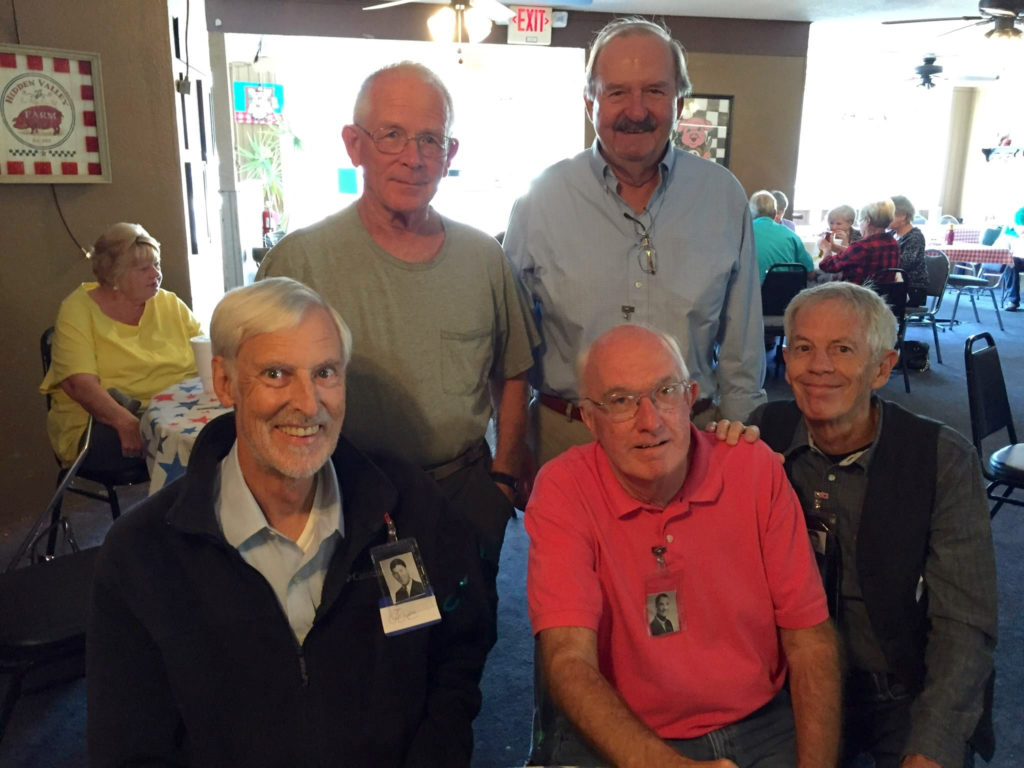 The photo above was taken last September at the 50 year reunion of the Kennett High School Class of 1966. Richard Peck and Larry Mullen standing; Joe Browning, John Robison and another guy seated. I attended my ten year reunion but skipped all the others. I’m glad I went to this last one. Got to spend a little time with Joe whose energy was released back into the Universe this week.
The photo above was taken last September at the 50 year reunion of the Kennett High School Class of 1966. Richard Peck and Larry Mullen standing; Joe Browning, John Robison and another guy seated. I attended my ten year reunion but skipped all the others. I’m glad I went to this last one. Got to spend a little time with Joe whose energy was released back into the Universe this week.
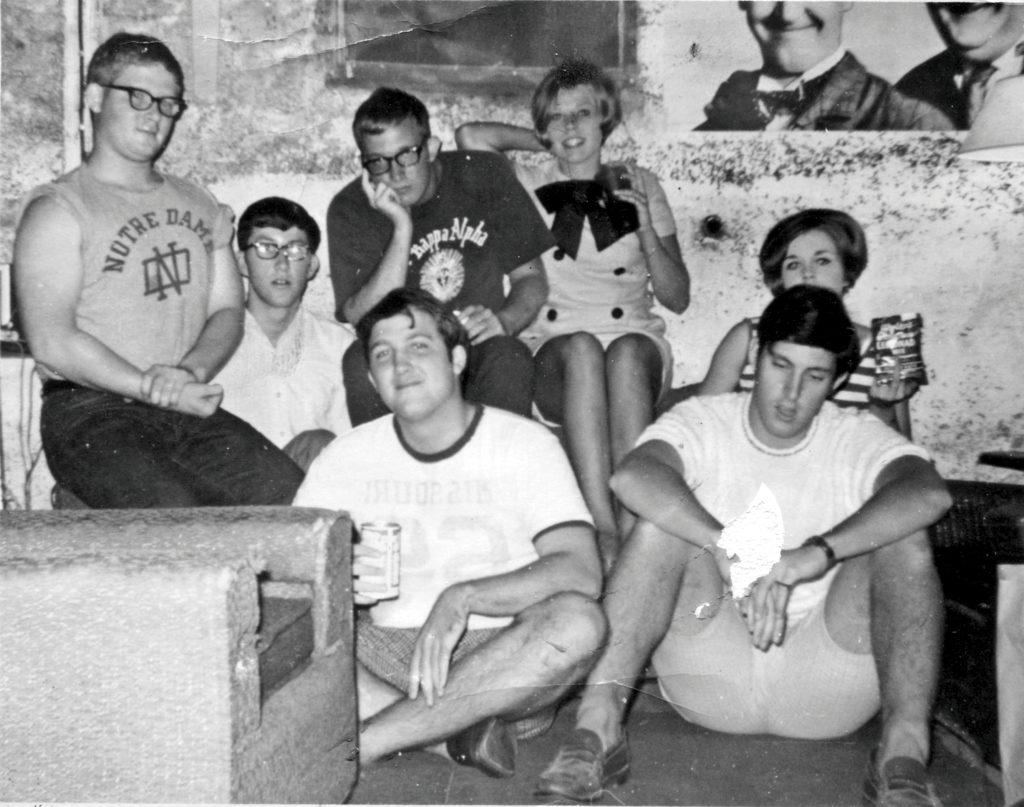
I took the other photo in 1968 in Richard Peck’s basement. A place to drink beer and be as young as we would ever be. L-R: Richard Peck, Jim Bob Green, John Robison, Jane Marshall and Lynn Strickland. Charlie Peck and Joe Browning down front. This photo became (for me) iconic of that wonderful time. How we came to be the old men in the class reunion photo is a mystery.
I’ve been thinking about the “fake news” thing. In retrospect it seems inevitable. Cameras and social media so pervasive you can’t safely send a picture of your wiener or shoot a fleeing African American. The only way to protect yourself from unflattering news reports is to undermine confidence in all news reports. If you “cry wolf” all day, every day… people stop believing in wolves. [Even though wolves keeping eating people.] That naughty photo? Photoshop, duh! Video? A little harder but, yeah, doable. The FBI lab confirms the video has not been doctored? Of course they’d say that.
What’s next? Well, I see two paths.
One, this is where we live now. No way to hold anyone accountable because there’s no way to prove what they said or did. We’re essentially in the dark. Perfect plausible deniability is the new reality.
Or… or what? Well, some way to tell the bullshit from the not-bullshit. Not sure what that might look like but it’s probably going to be something we haven’t thought of yet. And it won’t be perfect. The people that believe Sandy Hook was fake will always believe that. No, it will be something reasonable people will rely on. This will happen because it has to. If not, everything starts coming apart and — if for no other reason — the rich guys won’t allow that.
I have no idea what this might look like but I have a hunch (have I shown you my hunch?) it will be technical in nature. Something more bulletproof than what passes for human intelligence. Something… artificial.
A really good AI would see all this fake news as a threat to the Greater System and fire up some autoimmune response. Digital white blood cells searching out and killing the fake news infection.
My guess is we’ll get a lot sicker from this and be sick for a while. And we might not survive. So, yeah, I’m counting on a Satoshi Nakamoto out there somewhere, hunched over a laptop, trying to save humanity.
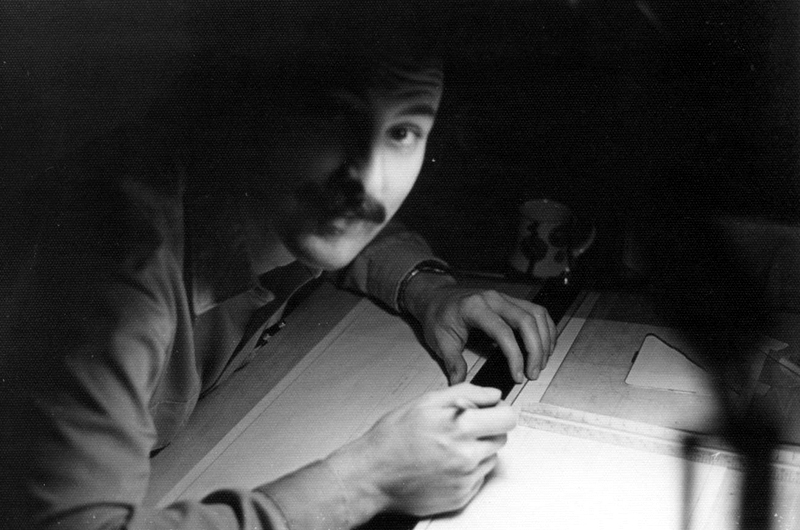
Joe Browning was always an artist. He became an architect. And accidental intellectual. He’s the only person I know that looks good with a beard. He only speaks when he has something worth saying. I’ve held Joe upright while he peed next to his back door. (“No, there’s no problem Mr. Browning…Joe will be right in.”) Joe used to run away when he got drunk.